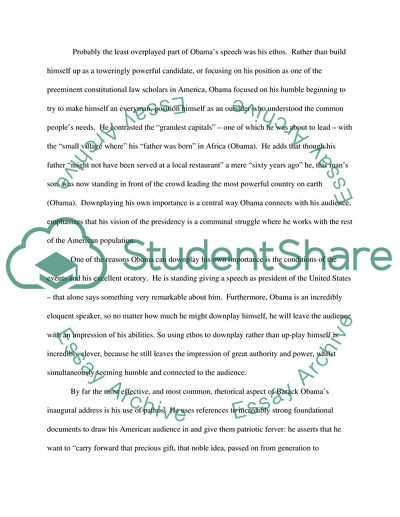Cite this document
(“Analysis of Barack Obamas Inaugural Essay Example | Topics and Well Written Essays - 1000 words - 2”, n.d.)
Analysis of Barack Obamas Inaugural Essay Example | Topics and Well Written Essays - 1000 words - 2. Retrieved from https://studentshare.org/english/1581840-critical-essay
Analysis of Barack Obamas Inaugural Essay Example | Topics and Well Written Essays - 1000 words - 2. Retrieved from https://studentshare.org/english/1581840-critical-essay
(Analysis of Barack Obamas Inaugural Essay Example | Topics and Well Written Essays - 1000 Words - 2)
Analysis of Barack Obamas Inaugural Essay Example | Topics and Well Written Essays - 1000 Words - 2. https://studentshare.org/english/1581840-critical-essay.
Analysis of Barack Obamas Inaugural Essay Example | Topics and Well Written Essays - 1000 Words - 2. https://studentshare.org/english/1581840-critical-essay.
“Analysis of Barack Obamas Inaugural Essay Example | Topics and Well Written Essays - 1000 Words - 2”, n.d. https://studentshare.org/english/1581840-critical-essay.


